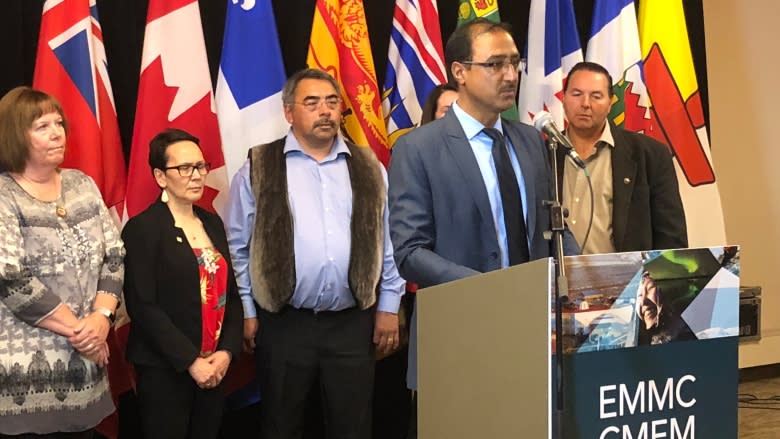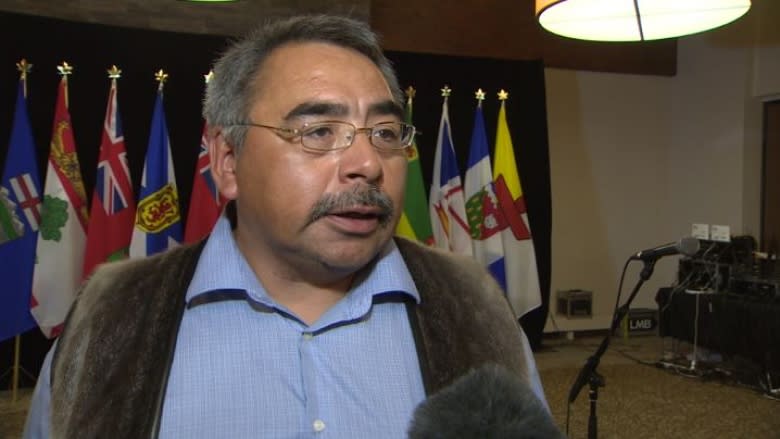Canada needs to focus on infrastructure in the North, Nunavut tells ministers' conference
Canada says it wants to increase mining and development in the North, as discussed at a conference in Iqaluit this week, but Nunavut is calling for better infrastructure to make it happen.
Ministers responsible for energy and mining from across the country met in Iqaluit for the Energy and Mines Ministers' Conference from Aug. 12 to 14.
Delegates from across Canada, except Ontario and Saskatchewan, came to an agreement that natural resources industries need to be more competitive globally while also considering environmental sustainability and ecosystems in the Arctic that are vulnerable to climate change.
"Every time you come to the North and you're struck by the potential of this land," said Canada's Minister of Natural Resources, Amarjeet Sohi. "Not only in the area of natural resources such as minerals and the mining activity that is going on in this part of the North, but also the potential of the people."
The federal government said it will release a minerals and metals plan in 2019 with a promise to increase mining in Canadian provinces and territories. Sohi said the department will consult with First Nation, Métis, and Inuit leaders on the plan later this year.
David Akeeagok, the territorial minister of economic development and transportation, said Nunavut is ready for more development — if it can get the infrastructure it needs in place.
"Our opportunities are hindered by infrastructure, the lack of fibre, the lack of roads. These are various things that helped develop the country east to west," Akeeagok said. "Canada needs to focus up North, be it Yukon, N.W.T. or Nunavut."
Mining companies are also waiting on a land use plan for the territory. In July, the Nunavut Planning Commission began soliciting written submissions again for a draft created in 2016. The submission process closes in October and could lead to further public hearings.
The land use plan is supposed to regulate protected areas and lands open to development. Disagreements between federal, territorial and Inuit partners shut down the hearings in early 2017.



